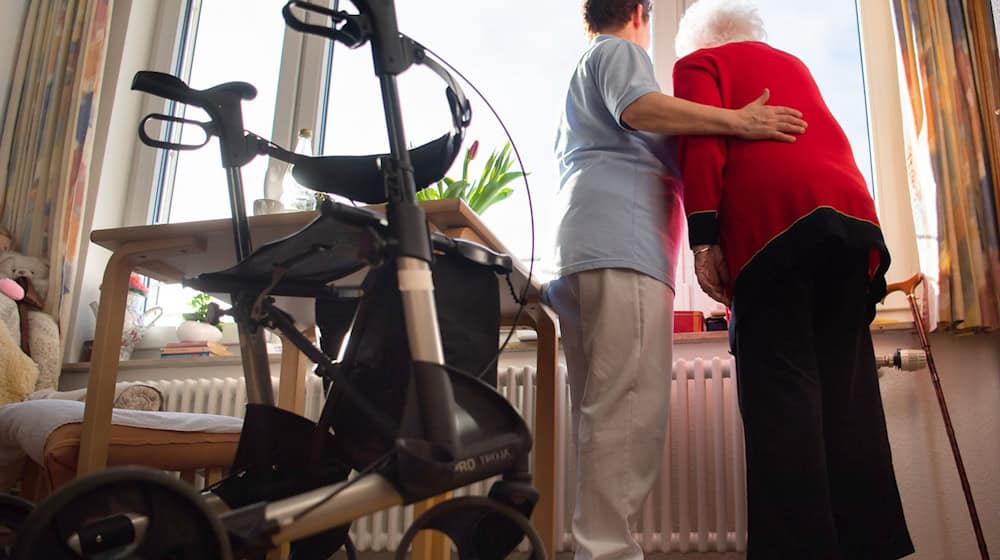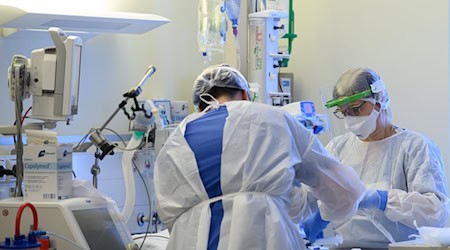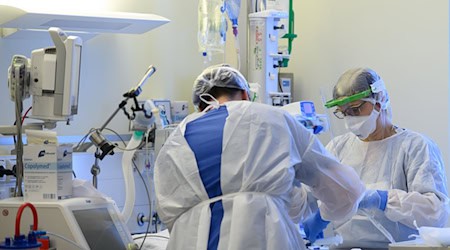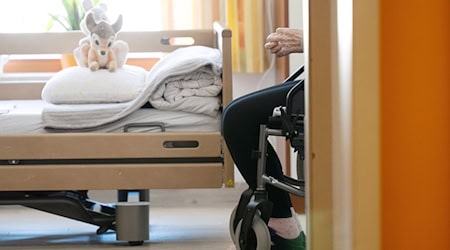Despite increased surcharges, the proportion of care costs that people in need of care in care homes in Saxony have to pay themselves has risen. As of July 1, 2,667 euros per month were due out of pocket in the first year in the home - 172 euros more than in mid-2023, according to an analysis by the Association of Substitute Health Insurance Funds. From the fourth year in the home, the co-payment rose to an average of 1,644 euros per month. This was 62 euros more than on July 1, 2023, according to the data available to Deutsche Presse-Agentur.
Saxony below the national average
Thus, the costs in the Free State remained below the national average of 2,871 euros (plus 211 euros) in the first year and 1,865 euros (plus 91 euros) from the fourth year onwards. The highest co-payment was due in Baden-Württemberg (€3,180 or €1,982) and the lowest in Saxony-Anhalt (€2,373 or €1,457).
The sums include the co-payment for pure care and support. This is because care insurance - unlike health insurance - only covers part of the costs. For residents in nursing homes, there are also costs for accommodation, meals and investments in the facilities.
For the first time, training costs, which are also passed on by the homes, were also included in the evaluation as of July 1. This item was also included in the comparative figures for July 1, 2023, as was explained.
Higher supplements since January
In addition to payments from the care insurance fund, there have also been relief supplements since 2022, which were increased as of January 1, 2024 with a reform by the traffic light coalition. The personal contribution for pure care will be reduced by 15 percent instead of the previous 5 percent in the first year in the home, by 30 percent instead of 25 percent in the second, by 50 percent instead of 45 percent in the third and by 75 percent instead of 70 percent from the fourth year onwards. The main reason for the increasing co-payment is higher staff costs for care staff.
According to the information provided, remuneration agreements between the care insurance funds and care homes in all federal states were analyzed. The Ersatzkassenverband includes Techniker Krankenkasse, Barmer and DAK-Gesundheit.
Copyright 2024, dpa (www.dpa.de). All rights reserved










